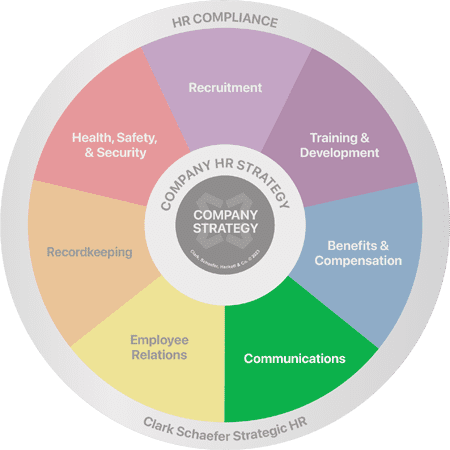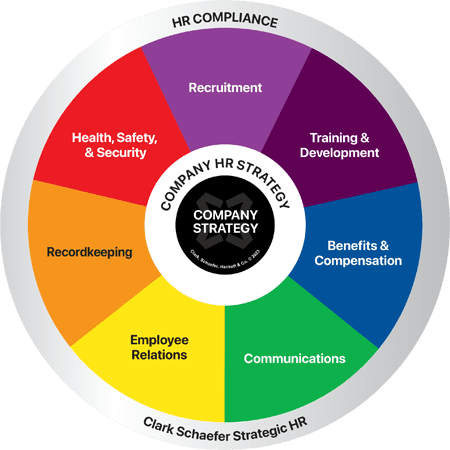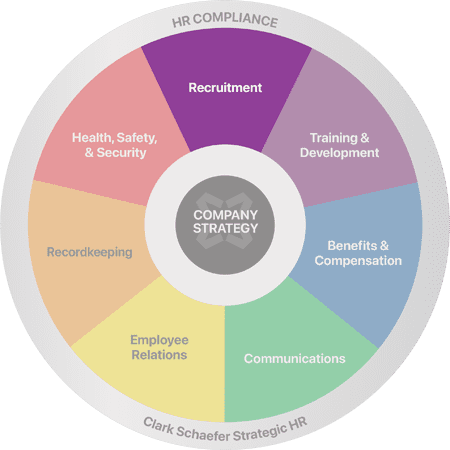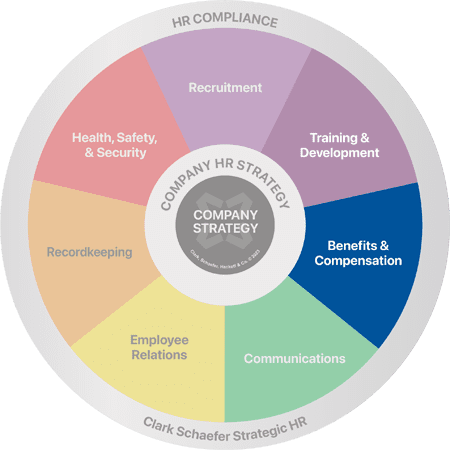What Are Stay Interviews and What Questions Should I Ask?
Last Updated on May 24, 2023 / Communications

HR Question:
Can you explain stay interviews – what are they? How should we use them and what should we ask?
HR Answer:
Not to be confused with exit interviews (meant for seeking to understand why departing employees are leaving), stay interviews are a great tool to understand why your employees choose to stay with your organization. They can also help to uncover potential areas of concern that may cause employees to leave if not addressed. Conducting stay interviews shows that you care about employees’ experiences and gives you the opportunity to make changes to retain your most valuable asset – your employees.
Who should participate?
Start with your end goal in mind. Consider why you’re conducting stay interviews and what you want to learn. This will help to determine who should participate. Some organizations may choose to focus on a particular department, a company location, or high performers. Others choose to conduct company-wide stay interviews. There’s not necessarily a right or wrong answer here.
Choosing Stay Interview Questions
Stay interviews typically consist of five to six questions, with at least one question that is quantifiable (i.e., rating satisfaction using a 5 or 7-point Likert scale) while leaving the others open-ended. The quantifiable questions provide a quick way to measure and easily report on employees’ attitudes, opinions, or perceptions of an aspect of work or the work environment. We recommend following quantifiable questions with asking why they chose their answer for additional insight.
Sample quantifiable questions:
- Would you recommend working here to a friend?
- Do you have the resources that you need to do your job effectively?
- Do you have clear goals and objectives?
- How happy are you to come to work every day? (Use a 5-point answer scale)
On the other hand, open-ended questions dig deeper into your employees’ thoughts, feelings, and experiences. These answers can reveal themes of what is going well and shed light on what can be improved to encourage employees to stay.
Sample open-ended questions:
- What do you look forward to when you come to work each day?
- What do you like most or least about working here?
- What are your favorite aspects of your job? Least favorite?
- If you could change something about your job, what would that be?
- What would make your job more satisfying?
- How do you like to be recognized or rewarded?
- What skills/talents are you not currently using at work?
- How can we best support your learning and development?
- What motivates (or demotivates) you?
- What might tempt you to leave?
- What can your manager do more of or less of to best support you?
Choose your questions carefully to ensure they help you to learn what you really want to know. It is okay to go into this process with some assumptions about what is and is not going well. The right questions can help you tease out whether your assumptions are correct. Sometimes addressing the “elephant in the room” is exactly what needs to be done. In other situations, the right questions can reveal issues that you weren’t even aware existed.
Selecting the Best Approach
Once you’ve identified who you want to include in the process and what you want to ask, your next steps are to determine the where, when, and how.
Location
Stay interviews can be conducted in person or virtually. Keep in mind that it is important to maintain privacy and confidentiality when selecting where to host the conversations. If conducted in person, be sure to select a location that is private and away from where others could overhear the conversation.
Timing
If you use five to six questions, they typically can be completed in less than thirty minutes. You can consider conducting stay interviews once a year or more frequently, depending on your needs.
Establishing Trust
It is essential to establish a feeling of psychological safety and trust so that employees feel comfortable being honest and open in sharing information. It is best for the data collection to be anonymous with results reported in summarized themes that are not traceable back to specific individuals. There should be no worry of retribution for sharing their thoughts and opinions. As a result, you’ll want to choose your interviewer(s) carefully.
Many organizations choose to have stay interviews conducted by independent outsourced experts who can guide them through the entire process of participant selection and question development, as well as conducting the interviews and providing follow-up data reports and recommended actions. Independent consultants can apply an unbiased approach throughout the entire process. This often leads to more robust data and action plans as employees are more willing to open up and talk.
The Key to Productive Stay Interviews
Hopefully, it goes without saying that you must go into this process prepared to react to what you learn. Employees are typically excited to have their voices heard. They will be anxious to see what you do with the information they have shared. It would be quite ironic if a lack of acknowledgment of their feedback would lead to employees feeling devalued and choosing to leave.
At the same time, it is unrealistic, and in most cases unnecessary, to address every concern that is raised. There will inevitably be outlier comments in the information collection process that only apply to one specific person or don’t seem to be significant for the broader good of your organization.
Be Transparent
You can position the process for success with clear and transparent communication from beginning to end. Well in advance of the stay interviews, make sure that you have communicated your intentions of conducting the interviews, why you are doing them, and the expected timing of the interviews. Particularly if you are using outsourced HR experts to facilitate the interviews, be sure that employees know who these folks are and what to expect.
In addition, manage employees’ expectations on the front end and throughout the process regarding how you plan to handle what is learned. It is fair and reasonable to say that you don’t expect to be able to solve all of the concerns that may be shared, but you are committed to learning from their perspectives and making some improvements.
Showing that you are committed to listening and taking action to strengthen your organizational culture will go a long way in increasing your employee engagement and their desire to stay.
Thank you to Melinda Canino, MS, Sr. HR Communications Advisor, and Alisa Fedders, MA, SPHR, Manager of Business Advisors, for contributing to this HR Question of the Week.
Are you left wondering why employees choose to stay or leave your organization? Our experts at Clark Schaefer Strategic HR can design and conduct independent, unbiased stay or exit interviews as well as employee surveys, pulse surveys, and more to assess employee satisfaction and engagement. Learn more about how we can help on our HR Communications page or simply contact us today!







